Business Law Case Analysis: R. v. Bata, Higginson, Harvard
VerifiedAdded on 2022/09/23
|5
|1158
|28
Case Study
AI Summary
This document presents a comprehensive analysis of three significant Canadian Business Law cases: R. v. Bata Industries Ltd., Higginson v. Babine Forest Products Ltd., and Harvard College v. Canada (Commissioner of Patents). The analysis of R. v. Bata Industries focuses on environmental law violations, outlining the company's failure to maintain its waste storage facility, leading to charges under the Environmental Protection Act and Ontario Water Resources Act. Higginson v. Babine Forest Products explores employment law, detailing a wrongful dismissal case where an electrician was unfairly terminated to avoid severance, resulting in substantial damages for the plaintiff. Finally, Harvard College v. Canada examines patent law, specifically the patentability of transgenic animals, and the Supreme Court's decision to reject the patent claim, emphasizing the limitations of the Patent Act in addressing higher life forms. The document provides detailed summaries of each case, legal principles, and court decisions, addressing the assignment brief's requirements.
1 out of 5
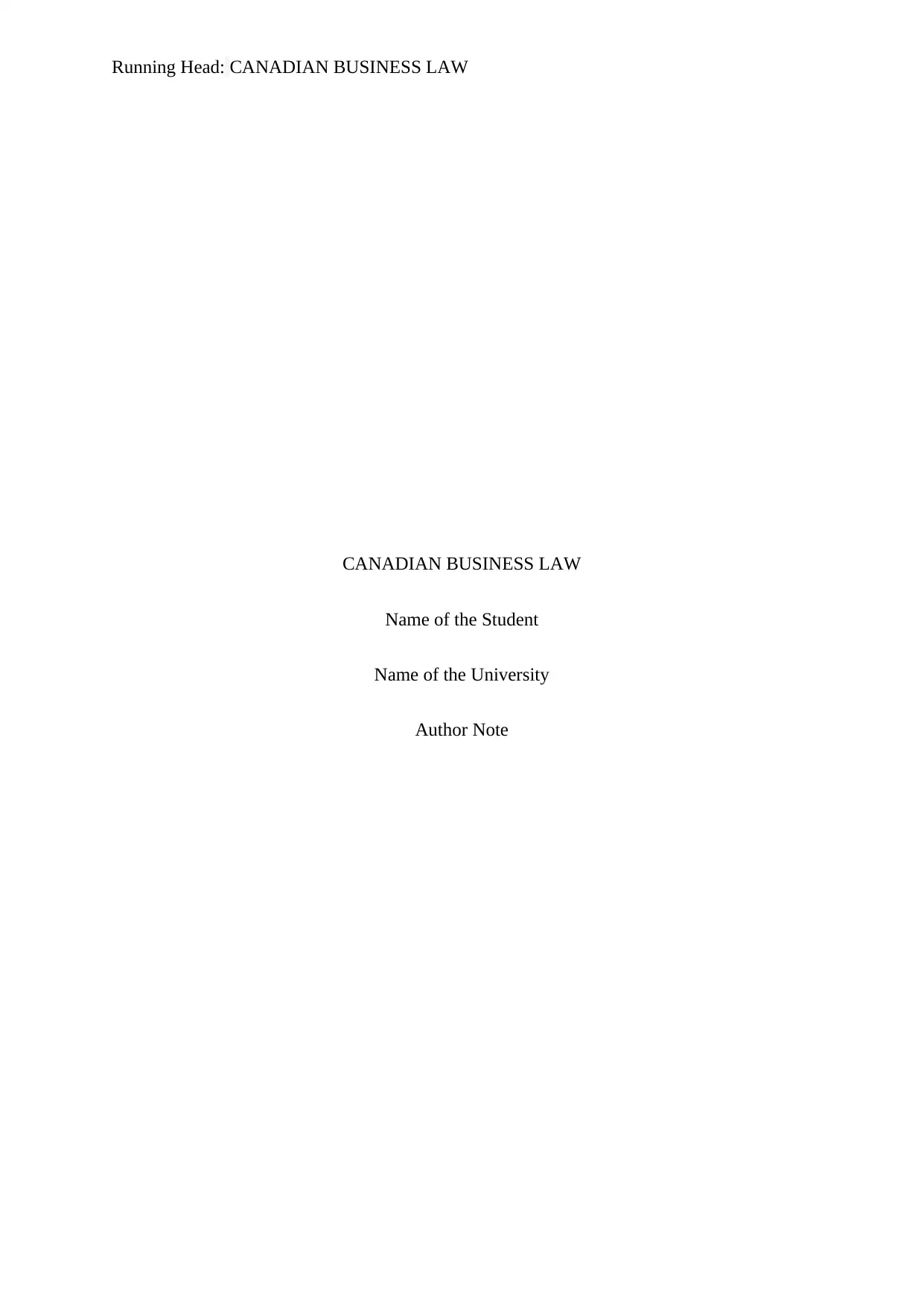
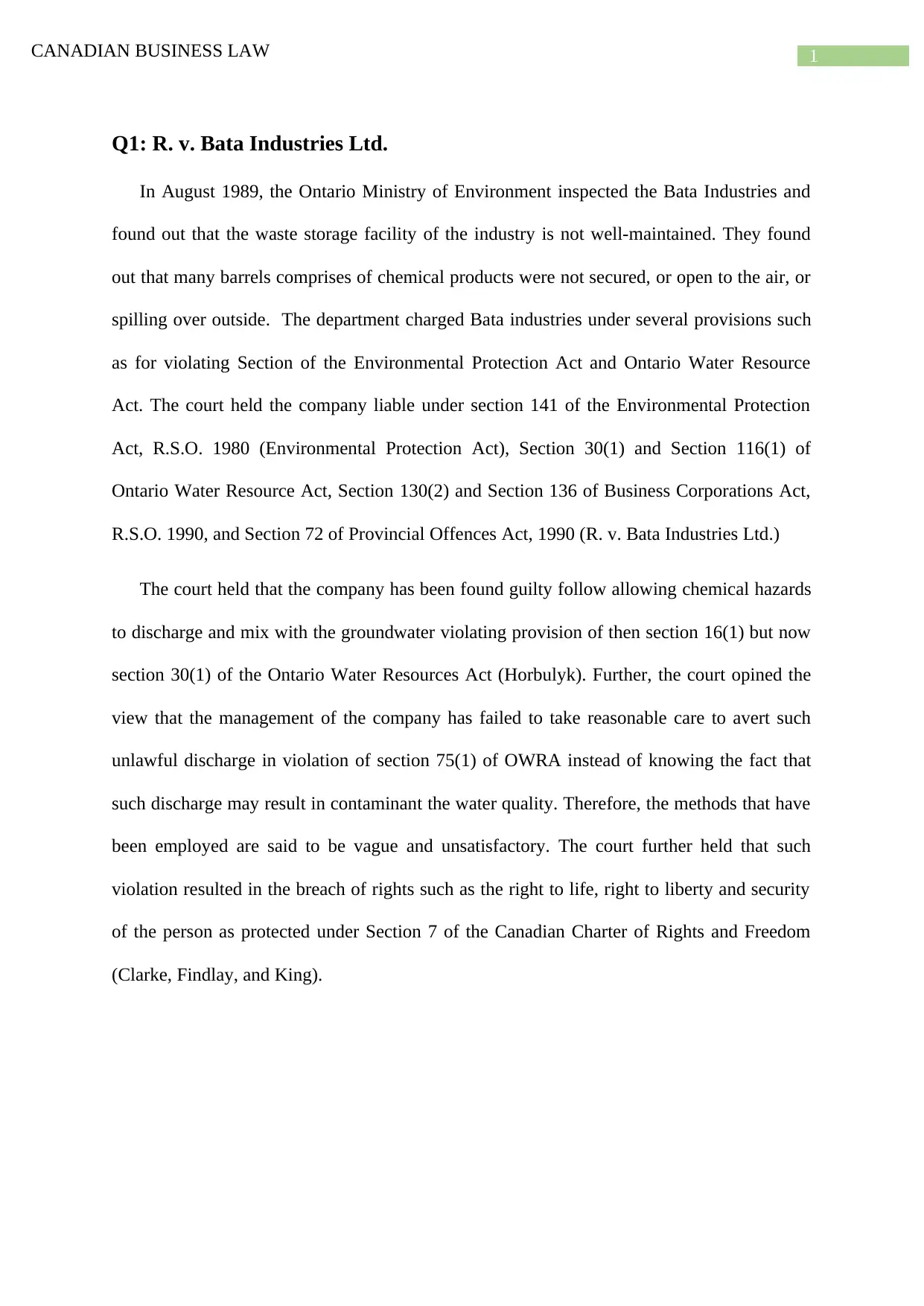
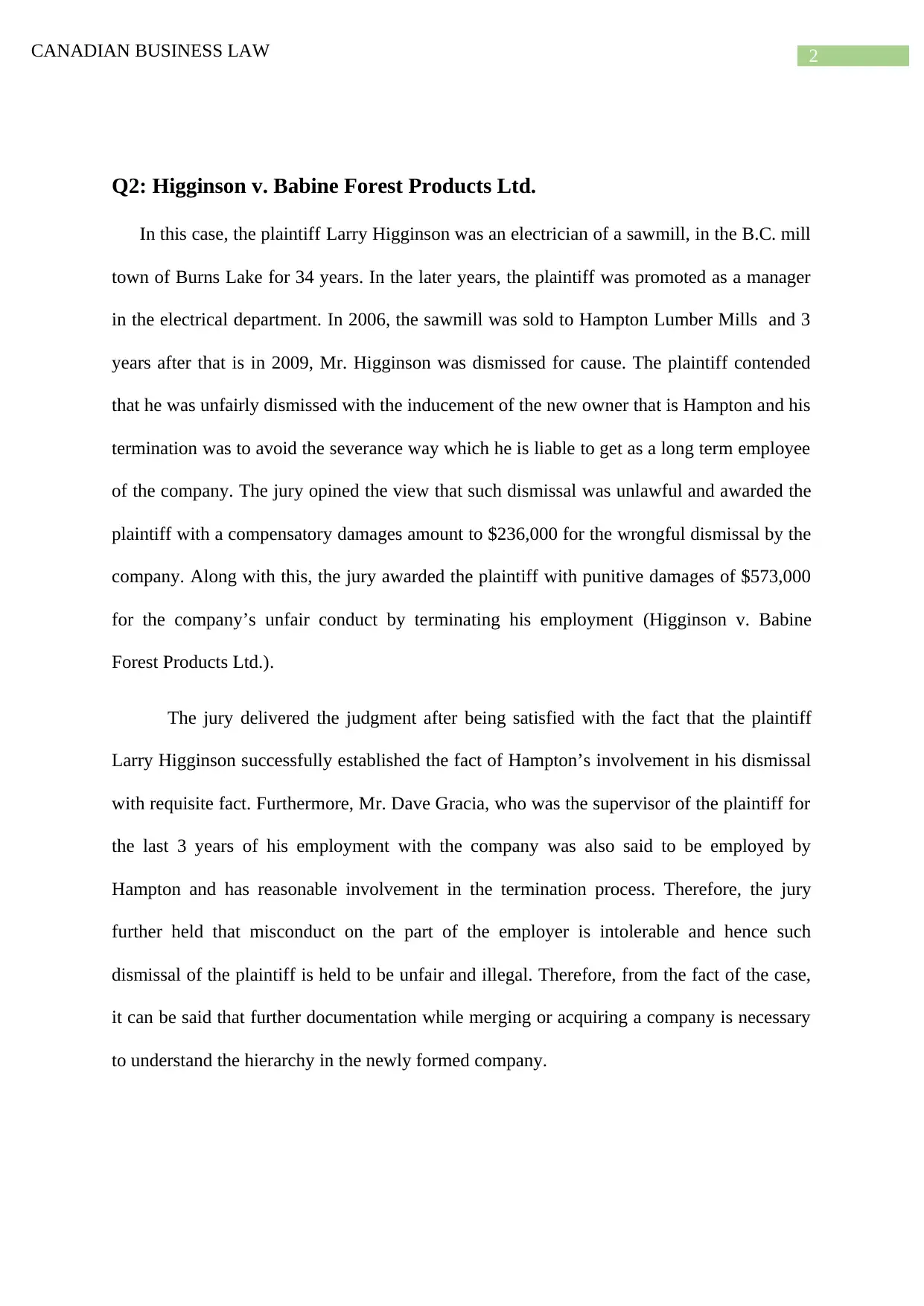

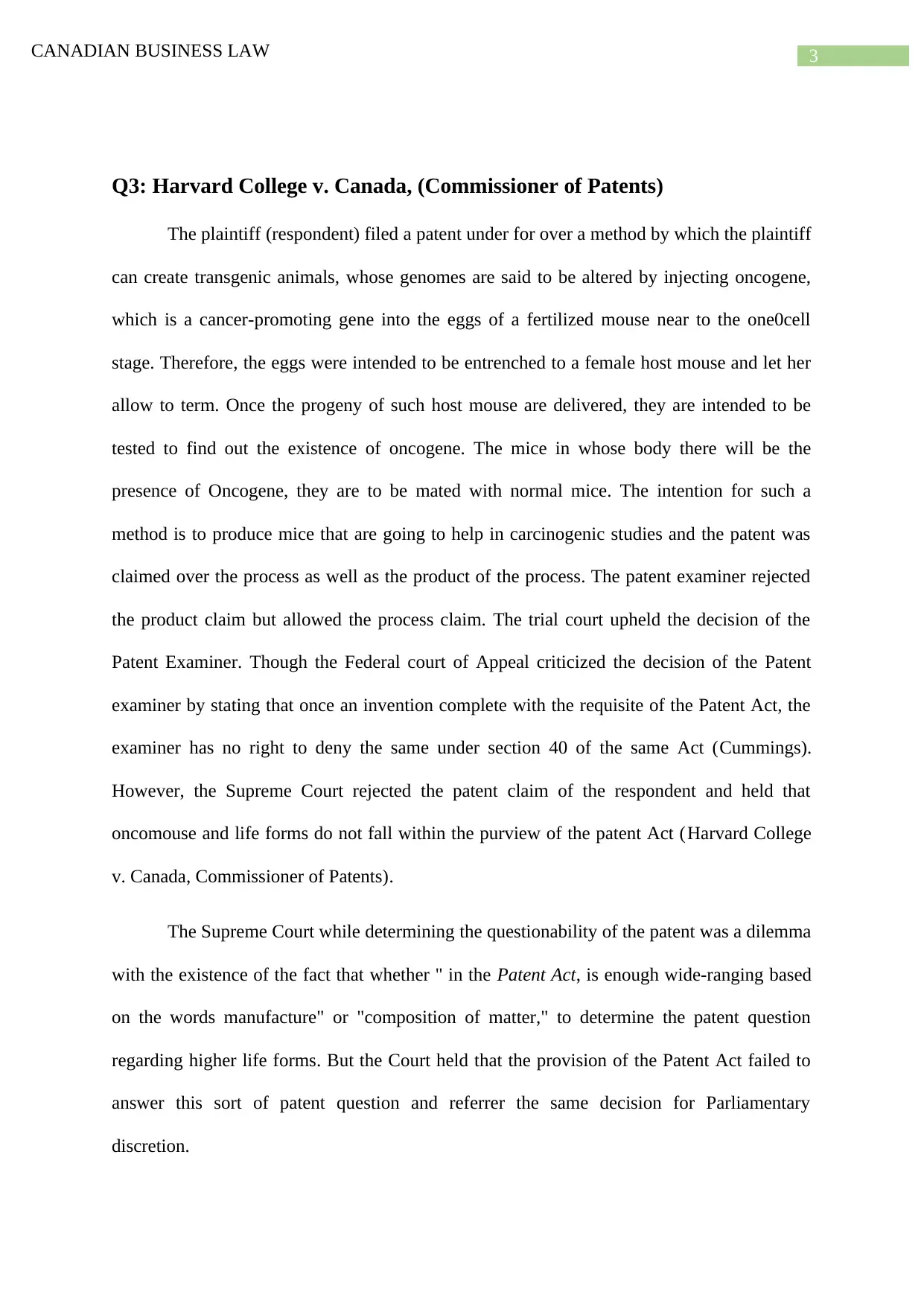
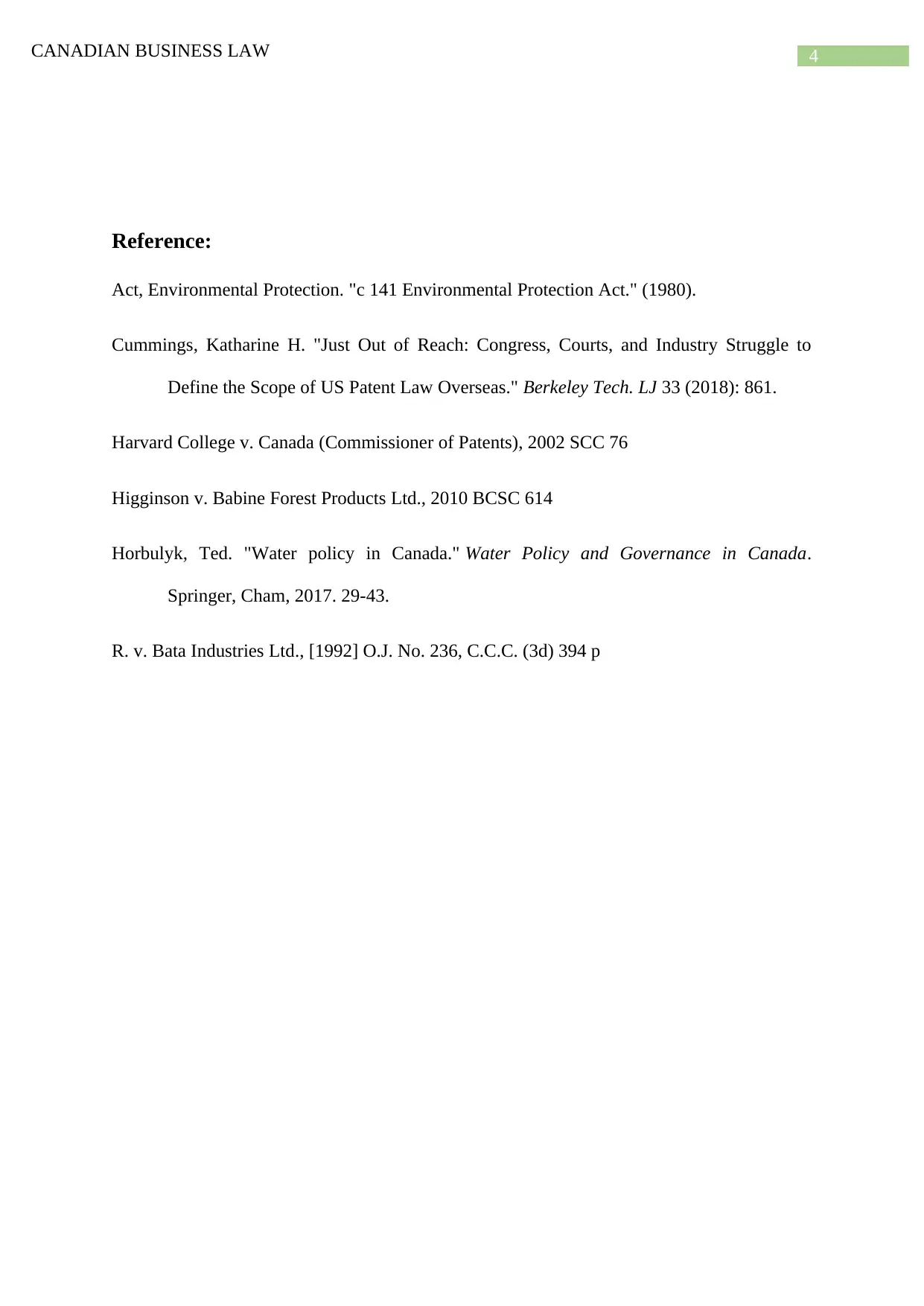

![[object Object]](/_next/static/media/star-bottom.7253800d.svg)